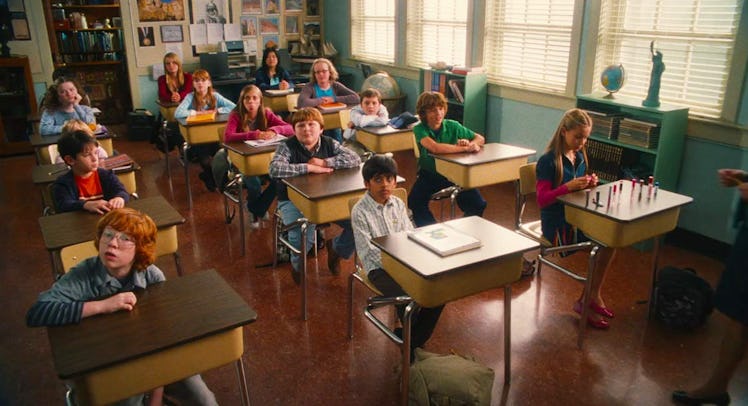The Financial Burden Of Choosing A Public Or Private School
Ready to get schooled?

As your kid approaches their school ages, the biggest school decision you’ll probably face as a parent is about where your kid will go. Should you stay in your school district? Maybe you could move to a better one. Can you afford to enroll your little learner in a private school? The implications of that decision are pretty profound. And depending on what you decide, your kid, your community and your bank account will feel it.
The Cost Of Private Schools
Of all the ways you could go, enrolling your kid in a private school is the option with the most obvious cost. And it turns out those costs are highly varied depending on where you live and whether you’d like your kid to get a secular or religious education (though good luck on finding a school based on the teachings of rock god Neil Peart).
In broad terms religious private schools, half of which are Catholic in the U.S., are more affordable than secular private schools. The average catholic school tuition is around $7,000. Secular private school tuition is around $22,000 and can top out at about $40,000. Which would make your kid’s yearly education cost about the same as a reasonably priced car.
The Cost Of Public Schools
“But, wait,” you holler. “Isn’t a public school education free for taxpayers!?” Kinda. Sorta. It really all depends on how you go about it. If you plan on staying in your local school district and are already paying property taxes, you won’t notice a big hit in your budget. Though the one caveat is that some public schools may charge for a full day, rather than a half day, of Kindergarten. But your kid didn’t want to go to Kindergarten all day anyway.
However, if you decide to move because you noticed your local school district has a crappy score on your favorite online real estate site, you may have to cough up some dough. That’s because home prices in high performing school districts can run almost twice the cost per square foot than in school districts with either average or poor performance ratings. That means you could be paying over $1,000 more a month on your mortgage. Which adds up over the course of your kid’s education. Much like the layer of stress-fat from trying to figure out how to make it all work.
The School Cost Comparison
So what’s better? It really depends on how tricky you want to get with it. Some suggest that if you move your kid to a poor to middlin’ school district, you could actually save money by getting a lower mortgage and sending your kid to a lower-cost private school.
On the flip side, having more than one kid going through public school in a good school district could put the savings back in your favor. Which means you should get your partner pregnant again ASAP.
Other Considerations
If you decide that private school is too rich for your blood, and you are hesitant to ditch a community or neighborhood that you love, you might want to stay put. But how can you be assured your kid is still getting the best education your taxes can buy? Here are 2 ways:
Go Charter
Charter schools rely on public funds, but are privately operated. They have their own pros and cons, of course.
Depending on your kid’s learning style, you might just be able to find an innovative and tech-driven charter that meets their needs. On the other hand, some charter schools have been linked to corruption and civil rights issues. Finding the right charter will require a great deal of homework. You also have to be pretty okay with pulling money from local non-charter schools.
flickr / Patrick
Get Involved
If you feel particularly committed to your community, and you’re worried about your district, consider getting involved. A recent deep dive by writer Andy Hinds showed that involved parents can actually make a difference to schools that have bad scores.
But there’s a catch: the school you’re hoping to improve has to be a place that’s willing to accept you as a champion. Otherwise, you might be better off somewhere else.
This article was originally published on